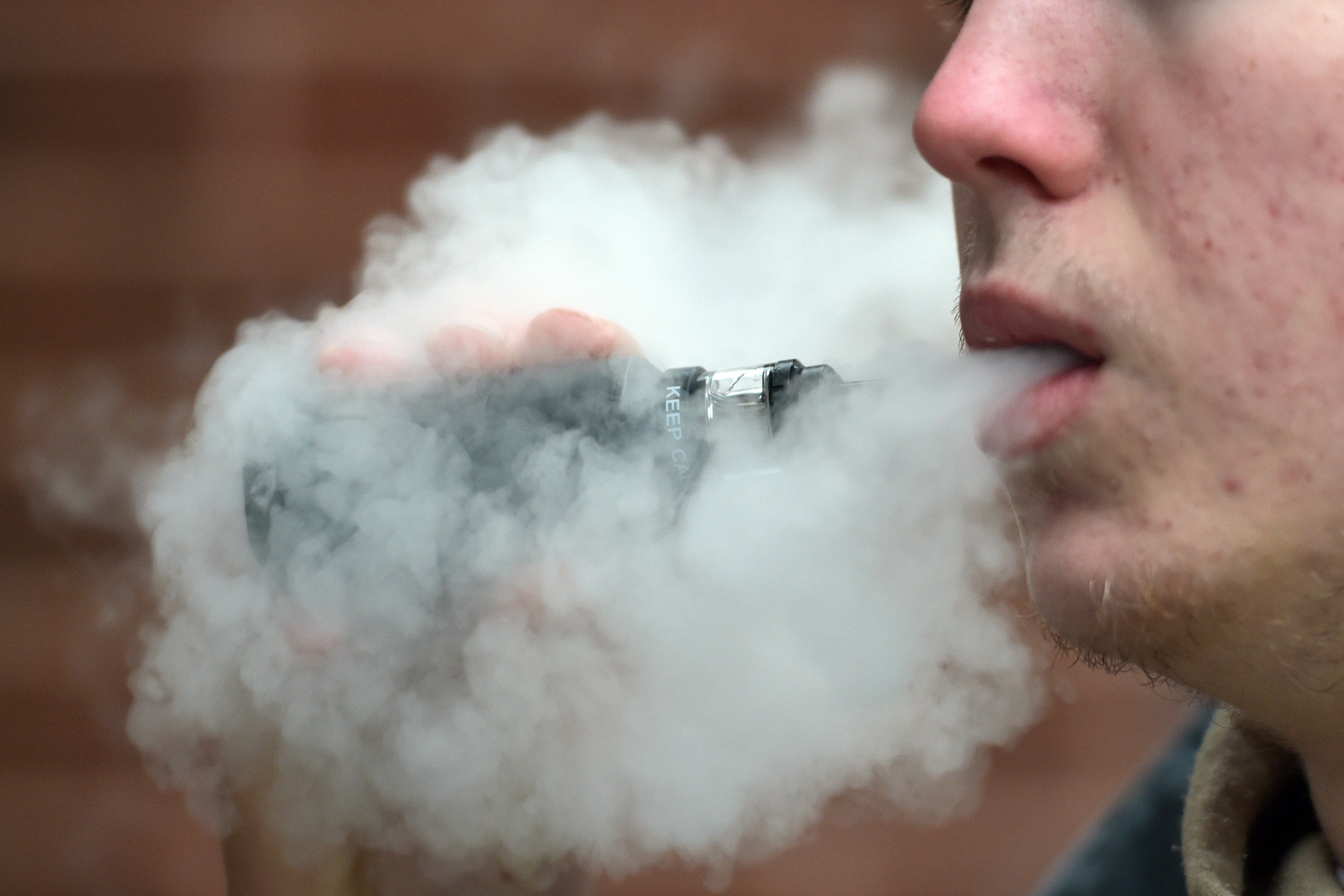An individual may age “faster” if their father smoked during puberty, a new study has suggested.
The research found that smoking among boys aged 15 and younger could cause damage to developing sperm cells, with effects then passed on to their future offspring.
The study, presented to the European Respiratory Society Congress in Amsterdam, found signs of faster biological ageing, compared with actual age, among people whose fathers began smoking at 15 or younger.
Researchers examined the blood samples of 892 people from various European countries and Australia, ranging in age from seven to 50, to assess the markers of ageing in a person’s DNA, sometimes referred to as an epigenetic clock.
The subjects were asked a series of questions, including whether they or their parents had ever smoked and at what age.
People whose fathers began smoking during puberty were around nine months to a year older than their chronological age on average.
If the person had ever smoked themselves, the differences were “more pronounced”, the authors reported.

Among those whose fathers began smoking later in life, researchers found only a small increase in biological age.
They found no clear pattern in biological ageing in people whose mothers smoked before pregnancy.
Presenting the study, Dr Juan Pablo Lopez-Cervantes from the University of Bergen, Norway, said: “Our research group has previously shown that smoking during puberty may harm not only the person who smokes, but also their future children.
“In this new study, we wanted to explore whether parental smoking in puberty may also influence the biological ageing of their future children.”
He added: “Accelerated biological ageing is important as it has been linked to a higher risk of diseases such as cancer, arthritis and dementia in previous research.
“Our results suggest that boys who smoke during puberty may be unknowingly creating harm for the children they go on to have.
“This research does not fully explain why smoking in puberty is linked to faster ageing, but we think that when fathers start smoking during puberty, it may alter the epigenetic material of their sperm cells, and that these changes may be passed on to the next generation.
“Although this research is still in its early days, we believe our findings are important for young boys who smoke or consume other types of nicotine products.
“Stronger efforts to prevent tobacco use in adolescence should be a priority for policymakers. Such efforts could benefit not only the current generations but also those in the future.”

Sarah Sleet, chief executive of Asthma and Lung UK, said: “This research highlights why we must do everything we can to keep children away from smoking and help them stop if they have started.
“Public health educators will need to think about how to help boys on the threshold of puberty understand the dangers not just for them, but also for any children they may have.
“Adequate funding for smoking cessation services is vital. You are three times more likely to quit smoking successfully if you have a combination of counselling support and treatment to help relieve cravings and break tobacco dependence.
“Smoking cessation services actually save the NHS money, but should be paid for by a ‘polluter pays’ levy on the tobacco industry, which continues to make massive profits off harming people, with no penalty.”
Dr Stamatoula Tsikrika, chairwoman of the European Respiratory Society’s expert group on tobacco, smoking control and health education, said: “We all know that smoking causes diseases such as asthma, COPD (chronic obstructive pulmonary disease) and cancer.
“What we’re starting to learn is that the damage caused by smoking can persist across generations.
“This study suggests that boys who start smoking at 15 or younger can pass the damage on to any children they have many years later.
“Although rates of smoking in teenagers seem to be declining, rates of vaping are generally increasing, and we don’t yet know the long-term impact of vaping on children and teenagers.
“This research is another reminder that we need to protect children and teenagers from nicotine addiction, smoking and vaping.”
People may age faster if father smoked during puberty, study finds
Kate’s personal message for Red Roses ahead of Rugby World Cup final
Taxes on alcohol and smoking can help countries facing severe aid cuts
Study finds singing these three songs could help treat lung disease
‘I used AI to spot my skin cancer – it saved my life’
Eating this common food could protect your lungs from air pollution







